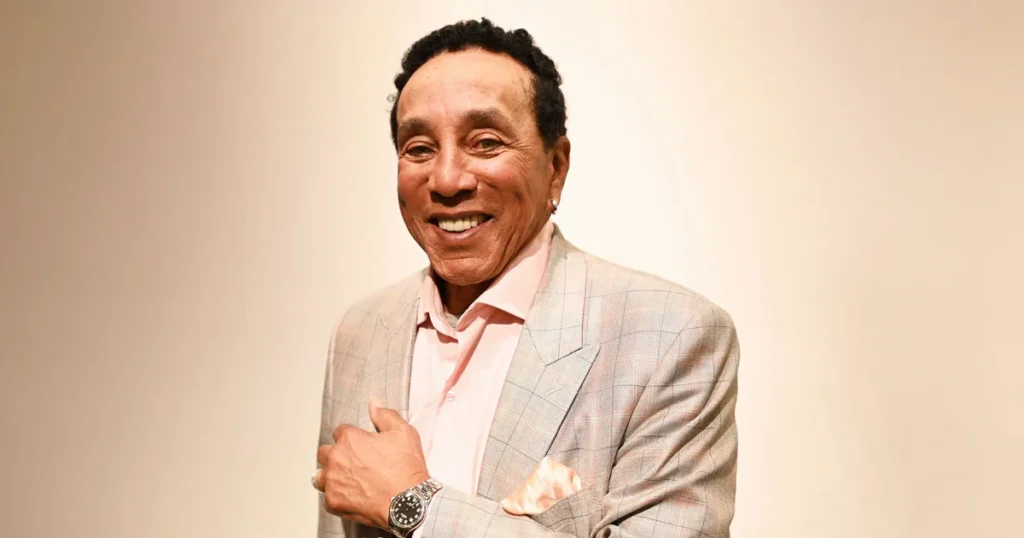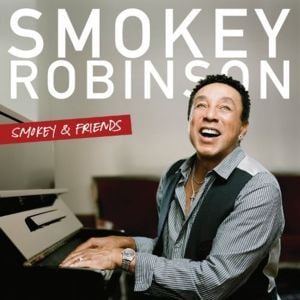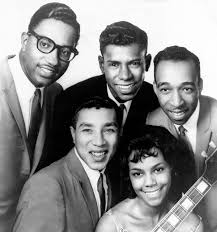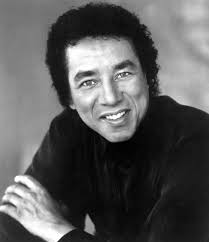
“Smokey Robinson’s Timeless Tunes: A Soundtrack of Love and Hope”2025

Like the opening notes of a well-known tune, a certain warmth comes over you when you hear Smokey Robinson’s name. His voice, soft as velvet and gentle as a whispered vow, has served as the background for innumerable heartbreaks, romantic tales, and times of introspection. In addition to making music, Smokey Robinson, the poet laureate of Motown, created a timeless soundtrack of love, hope, and resiliency that appeals to all ages. We’ll delve into Smokey’s music’s enchantment, his incomparable contributions to soul and R&B, and the reasons his songs are still as relevant today as they were in the 1960s.
Breaking Barriers
The Voice That Defined a Generation

Born William Robinson Jr. on February 19, 1940, in Detroit, Michigan, Smokey grew up in a musically vibrant city. Young Smokey took in the gospel, jazz, and emerging rhythm and blues sounds that filled the streets of Detroit. His uncle gave him the nickname because he loved cowboy movies, but it was his high, expressive, and painfully honest voice that would make him a legend.
Smokey’s ability to effortlessly and gracefully portray unfiltered emotion was what made him unique. In songs like “Ooo Baby Baby,” his falsetto could reach euphoric heights, and in “The Tracks of My Tears,” it could dip into a gentle, pleading vulnerability. In addition to singing, he also told tales, illustrating the delights of love and sorrows with every note.
A Songwriter’s Genius

Smokey’s songwriting was a revelation, but his voice was a gift. He wrote more than just songs; he incorporated poetry into his songs, crafting universal yet intensely intimate lyrics. He wrote hits for The Miracles and other artists as Motown’s in-house poet, helping to shape the label’s heyday.
But love wasn’t the only theme in Smokey’s songs. The intricacy of human emotions was reflected in songs like “The Tears of a Clown,” a 1970 chart-topper for The Miracles, which concealed deep sadness behind a cheerful melody. Co-written with Stevie Wonder, the song’s circus-inspired arrangement was a brilliant move that demonstrated Smokey’s talent for transforming suffering into art.
The Miracles and Motown’s Heartbeat

The Miracles produced hits like “You’ve Really Got a Hold on Me,” “I Second That Emotion,” and “Baby, Baby Don’t Cry” over the course of the following ten years. With Smokey’s voice acting as the emotional fulcrum, each track was a masterwork of narrative. With their music that cut across racial and cultural divides, the Miracles were more than just a band; they were a movement, representing the optimism and solidarity of the Civil Rights era.
Smokey’s contribution to Motown went beyond just his performances. In his capacity as Smokey Robinson the label’s vice president, he guided the company’s artistic direction, assisted in identifying talent, and mentored up-and-coming musicians. From The Supremes’ choreography to The Contours’ unadulterated energy, his influence could be seen everywhere. Smokey was Motown’s lifeblood in many respects, a creative force who assisted turn a small Detroit label into a global phenomenon.
Going Solo: A New Chapter

With songs like “Just My Soul Responding,” a socially conscious masterpiece that skilfully Smokey Robinson addressed racial inequality through poetry, his 1973 solo debut, Smokey, set the tone. However, his legacy was genuinely redefined by his 1975 album A Quiet Storm. A whole R&B subgenre known as “quiet storm” was born out of the title track, a lush, slow-burning masterpiece. Smokey’s reputation as a romantic icon was cemented when the song became a late-night anthem for lovers thanks to its intimate lyrics and jazzy instrumentation.
Smokey kept coming up with new ideas in the 1970s and 1980s. His ability to create Smokey Robinson chart-topping magic was demonstrated by hits like “Cruisin'” (1979), with its seductive groove, and “Being With You” (1981), a breezy ode to devotion. even as disco, funk, and later other genres became more popular. hip-hop, Smokey’s music remained a constant, offering solace and joy in equal measure.
Why Smokey’s Music Endures

What, then, makes Smokey Robinson’s music so timeless? It’s his genuineness, to start. Smokey’s voice Smokey Robinson carries an honesty that strikes a deep chord, whether he’s singing about the excitement of new love or the pain of betrayal. His songs are more than just amusement; they resonate and serve as a window into our personal lives.
Above all, Smokey’s songs are timeless because they touch on universal themes. Smokey captures universal themes like love, hope, and perseverance with the precision of a poet and the soul of a singer. Hip-hop artists have sampled his music, it has been featured in innumerable films and television series, and everyone from the Beatles to Linda Ronstadt has covered it. However, no one can sing a Smokey Robinson song as well as Smokey does.
A Legacy of Love and Hope
Smokey Robinson is still performing at the age of 85, his passion unwavering and his voice remarkably preserved. His 2023 album Gasms, a light-hearted examination of love and sensuality, is one of the new songs he has released in recent years, demonstrating that he is still talented. Numerous Smokey Robinson honours have also been bestowed upon him, such as the Kennedy Centre Honours, the Grammy Lifetime Achievement Award, and induction into the Rock and Roll Hall of Fame.
However, Smokey’s genuine legacy is found in the hearts he has won over. His songs have accompanied quiet times of introspection, weddings, breakups, and first dates. It has served as a reminder that love and hope can triumph over even the most difficult circumstances, carrying listeners through the Civil Rights Movement, the Vietnam War, and every other period since.





